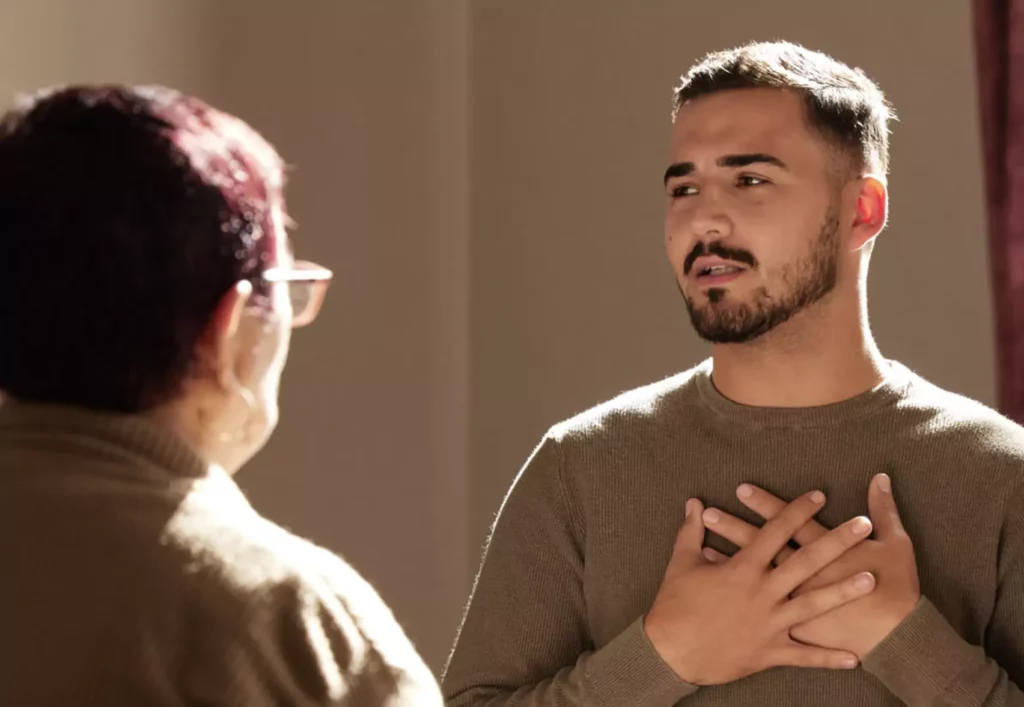As Anzac Day approaches, we find ourselves remembering the past – honouring those who have served and laid down their life in war. While this is important, Anzac Day should also be used as an opportunity to support those who have recently served, or those that are currently serving in the army, airforce and navy. It’s an opportunity for friends and family to check in on veterans and serving military personnel, acknowledging their present, discussing the past and looking to the future.
There is still a notion that veterans and servicepeople are not always eager to share their experiences, and while this holds some truth, this is because many listeners aren’t prepared to hear them. Many veterans and servicepeople actually possess a deep-seated desire to share, especially when they sense a genuine willingness to listen. The act of listening is not about simply hearing words, but about being present, patient and open-hearted to your loved one’s experiences.


Understanding the Power of Listening
In today’s world, the constant noise and buzz of social media often drowns out genuine human connection. The act of listening has become a rare skill. Listening demands a quiet mind, an open heart and an unwavering commitment to give someone your full attention while suspending judgement. It also requires patience.
This is especially true when it comes to listening to servicepeople and veterans, whose stories rarely unfold neatly or quickly. Their narratives are rarely straightforward or simple, but rather raw and searching. Speaking about the past, or ongoing struggles, can be a real challenge, so listeners need to navigate this carefully, viewing dialogues as a delicate process of discovery. It takes time to unpack the meanings, emotions, insights and truths within their stories over time, over multiple conversations.
Active Listening: Characteristics of a Good Listener
A good listener is an active listener. An active listener embodies patience, empathy and attentiveness. They are nonjudgmental and open-minded, demonstrating a genuine interest in the speaker as a person. They engage in appropriate eye contact, are alert to both verbal and nonverbal cues and refrain from interrupting the speaker. By asking questions in a non-threatening tone, paraphrasing and providing constructive feedback, a good listener fosters an environment of understanding and care.
Active listening is a powerful tool for providing guidance and support, without overwhelming those who have served. While speakers disseminate information, it is the listeners who interpret, understand and help decide upon the action to be taken.

Tips for Talking with Veterans and Servicepeople
If you are looking to speak truthfully with your friend or loved one about their experiences in service, here are some guidelines:
- Be Prepared for Honest Answers: If you ask about your loved one’s experiences, be prepared for the raw and unfiltered truth. This means being mentally prepared not just to hear, but to truly listen to and accept their experience, as well as any intense emotions, without judgement. Remember, it’s about providing a safe space for them to share, not about satisfying your curiosity. Avoid initiating conversations if you’re not emotionally ready to handle them.
- Give Them Time: The experiences of servicepeople and veterans are often complex and cannot be compressed into brief conversations. You need to give your loved one time to express themselves, so be prepared to listen for extended periods without steering the conversation with your perspectives. This uninterrupted space allows them to navigate their memories at their own pace. Your patient presence can make all the difference in helping them articulate their thoughts and feelings.
- Be an Active Listener: When engaged in discussion, use encouraging nods, appropriate questions and verbal affirmations that show you’re fully absorbed in their narrative. Encourage details and feelings and ask clarifying questions, but do so with respect and without imposing your own feelings. This approach helps validate their feelings and experiences, fostering a deeper connection and understanding.
- Offer Supportive Silence: There are moments in these conversations when words fail to provide comfort, and what’s needed instead is your quiet, supportive presence. If your loved one becomes emotional, resist the urge to fill the silence with platitudes or advice. You may touch or hold the person if it feels appropriate. Silent support is sometimes the most powerful.
- Listen with Empathy, Minimise Sympathy: While often well intentioned, sympathetic comments, such as “you poor thing” or “how horrible”, can make it more difficult for servicepeople or veterans to tell their stories. Instead maintain an airof calm concern and allow them to share their experiences without them feeling the need to manage your emotional reactions. If you require emotional support after your discussions, seek it from a third party.
- Acknowledge the Positives: It’s important to recognise that not every veteran or serviceperson is solely defined by trauma. Many find profound strength, growth and purpose through their service. Encourage conversations that also explore the positive aspects of their experiences, such as personal development, camaraderie and the skills they’ve gained. This can provide a more balanced perspective and help your loved one view their experiences in a new light.
Tailored Support for Servicepeople and their Loved Ones
At Hope in Health, we offer comprehensive Veteran Rehabilitation Programs designed to address the unique needs of those who have served. Our holistic approach seeks to nurture psychological, social and physical wellness, while providing tailored support to support each the unique experiences of every veteran or serviceperson. 2 Veterans may have the same diagnosis on paper, but completely different life situations – our rigorous assessment and unique treatment plans are designed for real individuals with real lives.
By connecting with Hope in Health, our clients and their families can find a pathway to recovery that is built on empathy, respect and recognition of their strength and resilience. To learn more about our programs, contact Hope in Health today.

